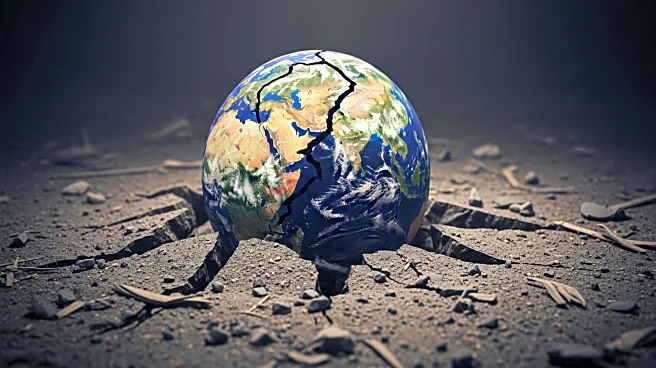What's Happening?
A 6.0 magnitude earthquake struck Afghanistan near the border with Pakistan, resulting in over 1,100 deaths and nearly 3,000 injuries. The quake, which occurred late Sunday, has destroyed approximately 8,000 homes, primarily affecting Kunar Province. Emergency responders are still working to reach remote villages, where more casualties are feared. The World Health Organization estimates that 12,000 people have been directly impacted. The hardest-hit areas include several districts in Kunar Province, with additional damage reported in Nangarhar and Laghman provinces. Health facilities in the region remain functional, and local staff are providing on-site assistance.
Why It's Important?
The earthquake's impact on Afghanistan highlights the country's vulnerability to natural disasters, exacerbated by ongoing political instability and limited infrastructure. The significant loss of life and property underscores the urgent need for international aid and support. The disaster may strain Afghanistan's healthcare system, already challenged by resource limitations. The global community, including humanitarian organizations, may need to mobilize resources to assist in recovery efforts. The earthquake also draws attention to the broader challenges faced by Afghanistan, including governance issues under Taliban rule and the need for sustainable development.
What's Next?
International aid organizations are likely to increase their efforts to provide relief and support to affected communities. The Afghan government may seek additional assistance from neighboring countries and global partners. Long-term recovery plans will be essential to rebuild infrastructure and support displaced populations. The disaster may also prompt discussions on improving disaster preparedness and response strategies in Afghanistan.








